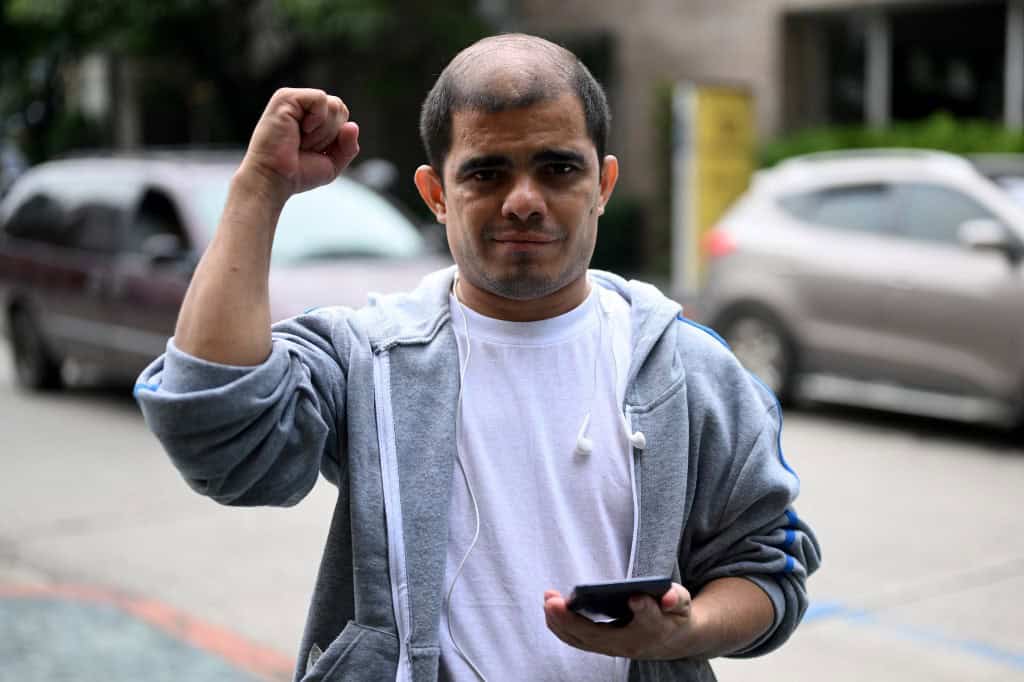Nicaragua revoked the nationality and confiscated the assets of a new group of former political detainees, a total of 135 people who, through U.S. mediation, were sent to Guatemala last week, a practice used previously and rejected by the UN. The measure was announced on Tuesday by the judiciary, accused of being at the service of Daniel Ortega’s government and his wife, Vice President Rosario Murillo, who has increased repression against critics since the 2018 protests, according to the UN.
A court in Managua ordered the “loss of Nicaraguan nationality for 135 people, convicted of criminal acts that threatened the Sovereignty, Independence and Self-determination of the Nicaraguan People” and “ordered the confiscation of all the assets of those convicted,” according to a statement.
With this decision, 451 Nicaraguan opponents have been deprived of their nationality since early 2023, according to an count based on official data. “Ortega and Murillo denationalize and steal assets from the 135 released political prisoners,” published Nicaraguan journalist Emiliano Chamorro, exiled in the United States, on the social network X.
Intensifies persecution
The UN itself denounced on Tuesday a law approved by the Nicaraguan parliament, controlled by Ortega’s government, which could intensify, in its opinion, the “repression” of exiled Nicaraguans, whose rights it called to “protect.” The UN Human Rights Council debated in Geneva the report on the situation in Nicaragua, presented by Christian Salazar Volkmann, head of the UN High Commissioner for Human Rights.
“These reforms could be used to intensify persecution and repression even more against Nicaraguan people, including those in exile, and foreigners, for the legitimate exercise of their rights,” he assured. The law to prosecute those who commit actions abroad against Ortega’s government has been denounced by exiles as a “tool of transnational repression.”
It contemplates sanctions of up to 30 years in prison and confiscation of assets for “crimes against public administration,” “cybercrimes” or “crimes against the State or institutions,” among others. Ortega’s government has tightened legislation and repression following the opposition protests of 2018. Since then, about 5,500 NGOs have been closed and their assets confiscated.
The protests left more than 300 dead in three months, according to the UN, and since then thousands of Nicaraguans have gone into exile and hundreds have been expelled and their assets confiscated. After the arrival of the 135 former detainees in Guatemala, a U.S. envoy asked Ortega not to strip these people of their Nicaraguan nationality, as he did with other released political prisoners and exiled opponents.
One of the latter is Nicaraguan writer Gioconda Belli, exiled since 2023 in Spain, who, before the Human Rights Council, demanded the “cessation of harassment against critical voices” by Ortega’s government. Writer and Cervantes Prize winner Sergio Ramírez, who was vice president of the Sandinista government (1985-90) and is now a critic of Ortega, was also stripped of his nationality.
Imperialist instrument
In its annual report on the situation in Nicaragua, the High Commissioner warned last week of the “serious” deterioration of the human rights situation under the government of Ortega and Murillo. The report documented arbitrary detentions of opponents, torture, mistreatment in detention, increased violence against indigenous communities, attacks on religious freedom and other abuses.
In a video intervention, Nicaragua’s Attorney General, Wendy Morales, denounced the “injustices, biases and illegalities” of the document, made, in her opinion, “with a defined agenda.” These instruments, used by the “imperialists” to intervene in internal affairs, “violate the principle of non-intervention,” Morales estimated, whom Washington sanctioned in March “for being an accomplice to oppression.”
As of June 2023, 271,740 Nicaraguans were listed as asylum seekers worldwide and 18,545 obtained refugee status, indicated another report in February by the Group of Experts on Human Rights on Nicaragua.






